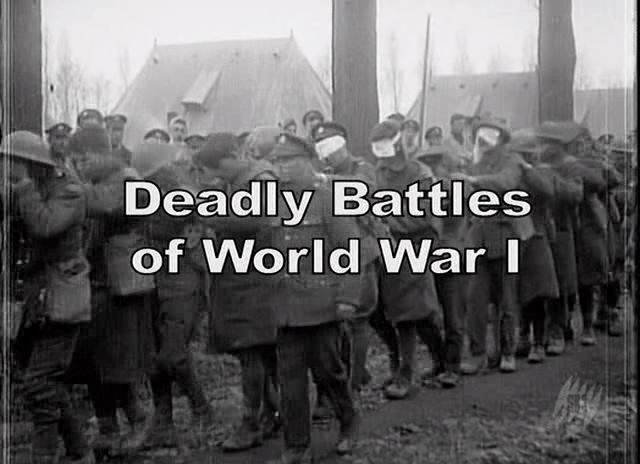Deadly Battles of World War I: poison gas killed 80,000 soldiers in World War I. Nearly a million more were victims who suffered its lingering effects. Initially the wind distributed chlorine gas across the battlefields of the western front but an arms race quickly developed until one in three shells contained some form of toxic gas.
Deadly Battles of World War I – Ypres the Gas Inferno part 1
It’s not the statistics, however, that make this a successful documentary. A surprising amount of black-and-white footage and interviews with survivors and relatives of key players tell a compelling tale of motivations and consequences.
During World War I, the Second Battle of Ypres was fought from 22 April – 25 May 1915 for control of the strategic Flemish town of Ypres in western Belgium. The First Battle of Ypres had been fought the previous autumn. The Second Battle of Ypres was the first mass use by Germany of poison gas on the Western Front. It also marked the first time a former colonial force (the 1st Canadian Division) defeated a European power (the German Empire) in Europe (at the Battle of St. Julien and Battle of Kitcheners’ Wood)
Verdun the Nightmare part 2
For those who adhere to the maxim that history repeats itself, it’s worth noting that despite an international convention banning chemical weapons, both sides of the Great War deployed poison gases with few reservations. As one interviewee puts it, patriotism defeated morality.
The Battle of Verdun, was fought from 21 February to 18 December 1916 on the Western Front. The battle was the longest of the First World War and took place on the hills north of Verdun-sur-Meuse in north-eastern France. The German 5th Army began by attacking the defences of the Fortified Region of Verdun (RFV, Région Fortifiée de Verdun) and those of the French Second Army on the right (east) bank of the Meuse.
Inspired by the experience of the Second Battle of Champagne in 1915, the Germans planned to capture the Meuse Heights, an excellent defensive position with good observation for artillery-fire on Verdun. The Germans hoped that the French would commit their strategic reserve to recapture the position and suffer catastrophic losses in a battle of annihilation, at little cost to the Germans, dug in on tactically advantageous positions on the heights.




